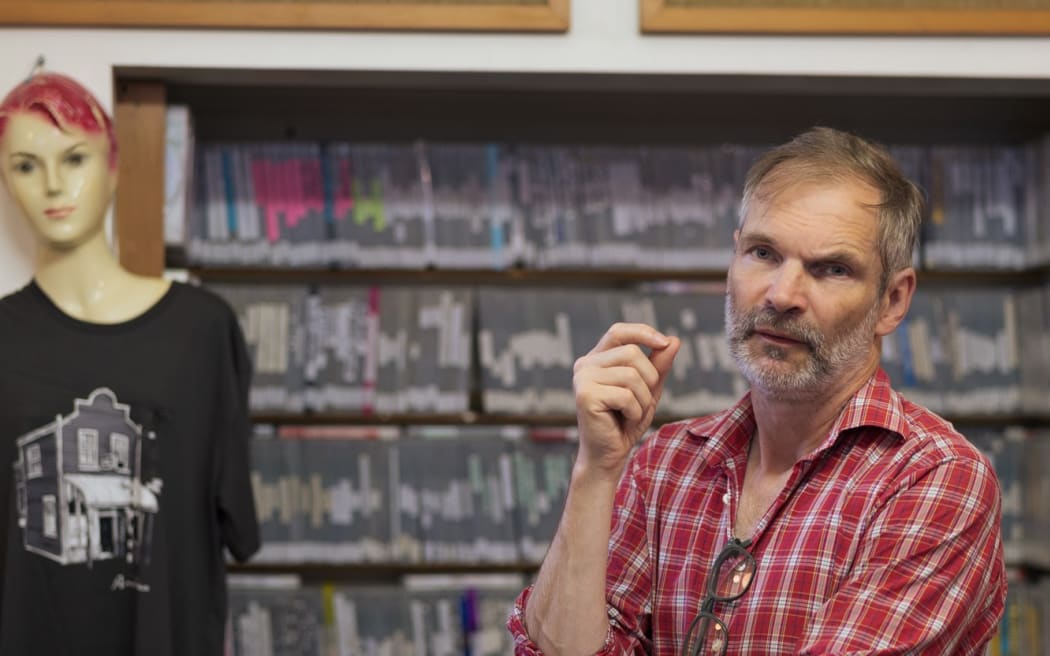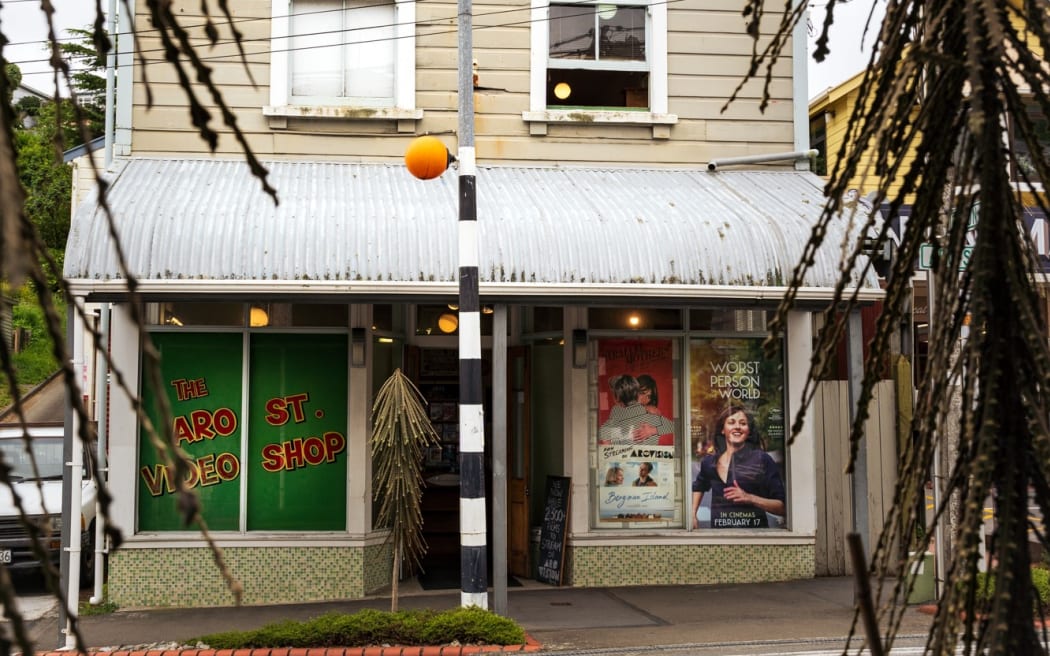
Andrew Armitage of Aro Video and Arovision Photo: Rebecca McMillan
This week, King Loser, an independent Aotearoa New Zealand documentary, won the Taite Music Prize for music journalism.
Directed by Cushla Dillon and Andrew Moore, the tragicomic chronicle follows rock and roll band King Loser as they try to make a comeback.
But where do you go to see it? Netflix, Neon, Disney? Think again. TVNZ Plus? Not even.
King Loser has one streaming provider following its small cinema premiere at last year’s International Film Festival.
Arovision is a local independent streaming platform borne from a legendary video and DVD service - the Aro Video Store.
The shop has been running for 35 years and is one of only eight DVD and video stores that RNZ can determine remains nationally.
But even with streaming, it is not easy being local among the corporate giants, Arovision founder Andrew Armitage told Culture 101.

Aro Video Store in Wellington's Aro Valley. Photo: Rebecca McMillan
Ahead of the Oscars earlier this year, NBC Universal Pictures refused to renew a contract with their New Zealand-based platform hosts, Shift72. That led to the removal of more than 200 titles from the Arovision service.
That is the reason Christopher Nolan's Oscar-winning Oppenheimer is not available through Arovision. They simply could not negotiate a high enough fee, and the NBC Universal catalogue remained out of reach, Armitage says. At least for now.
Arovision is one of three locally owned streaming platforms (the others being Academy on Demand and NZ Film on Demand) where rather than paying a subscription, audiences rent per title. Among Arovison’s 2800 online titles, there are 217 New Zealand films.
Arovision has a partnership with the New Zealand International Film Festival to stream its films (independent from festival screening rights). Few of these acclaimed films are to be found on subscription platforms. The same goes for Arovision’s general focus on "festival, cult, classic and unusual titles".
Armitage says Aro Video has battled on in parallel, committed to the preservation of its DVD archive as something of public value.
A collection of more than 27,000 titles stands as the largest single collection of DVD and video titles in Aotearoa.
Its survival is unusual: this month the Guardian documented the last three video stores remaining in the UK, and the last DVD store in London closed late last year.
In Aotearoa, our remaining video stores include Alice in Videoland in Ōtautahi, Auteur House in Hamilton, Movie Scene Paeroa, Dead Video in Lyttelton, Island Bay Video in Pōneke and the last remaining United Video stores in Morrinsville and Masterton.
Part of Aro’s survival plan has been building a strong community around loving film, sharing commentary about films via social media and holding events like a monthly Secret Cinema Club (presenting a surprise film every time).
Will the VHS and DVD get the same revival as we are starting to see in music for the cassette tape and CD? Armitage is not sure, but he believes the Arovideo archive deserves to enter the public library system, and would welcome the interest.

